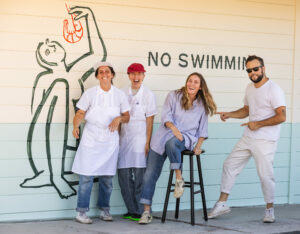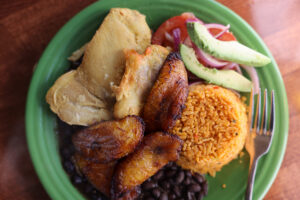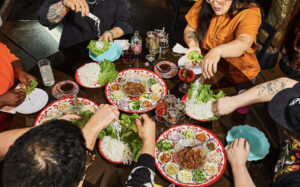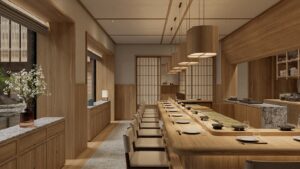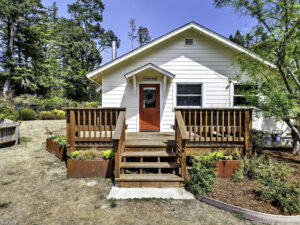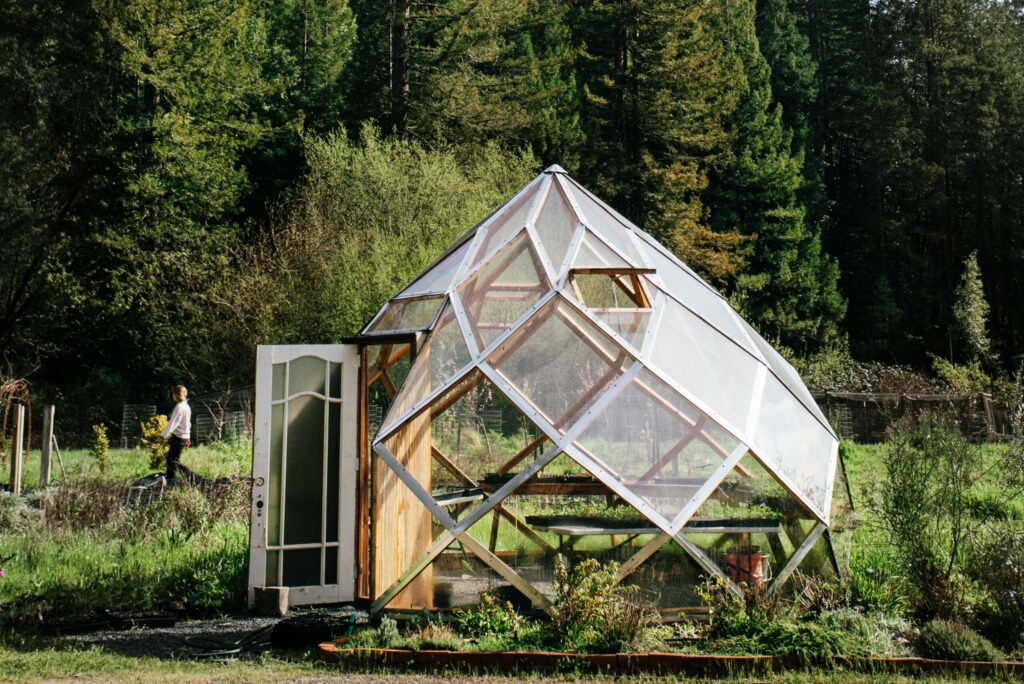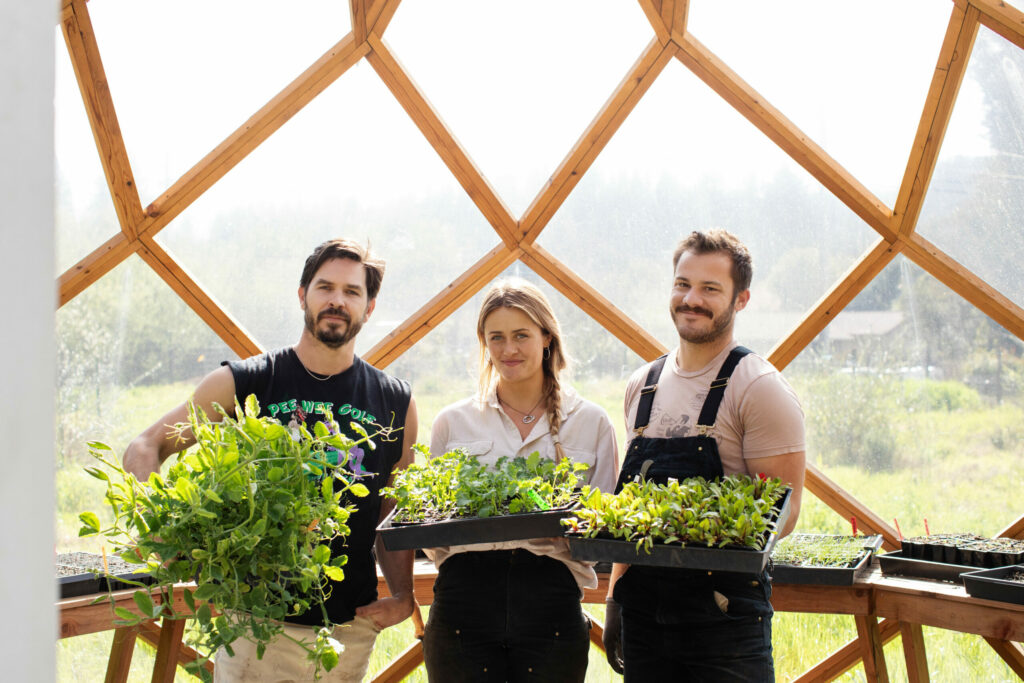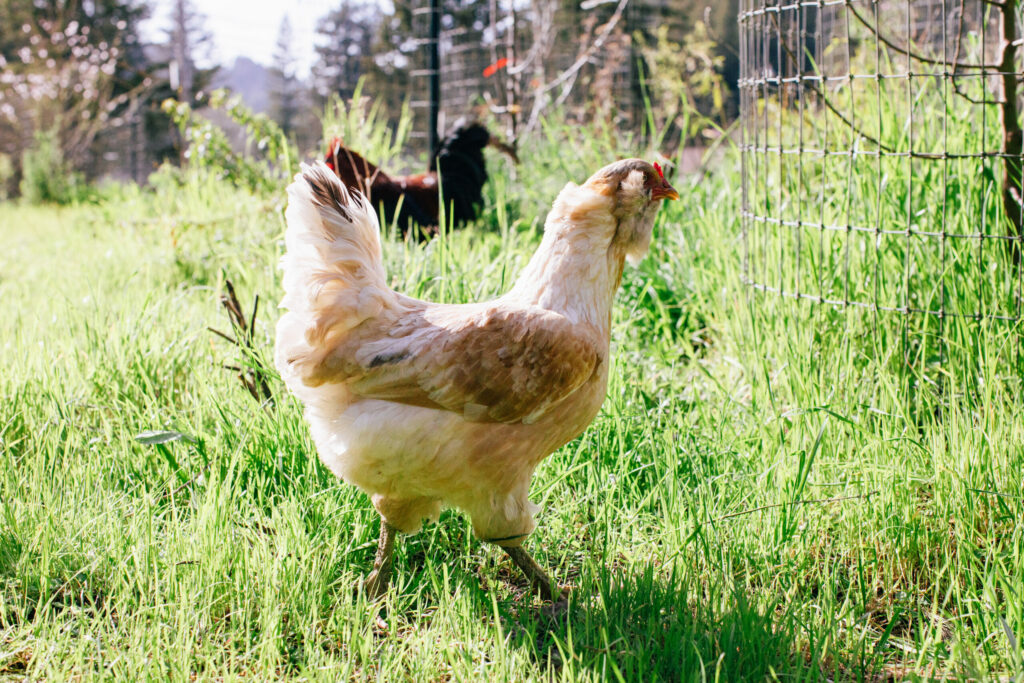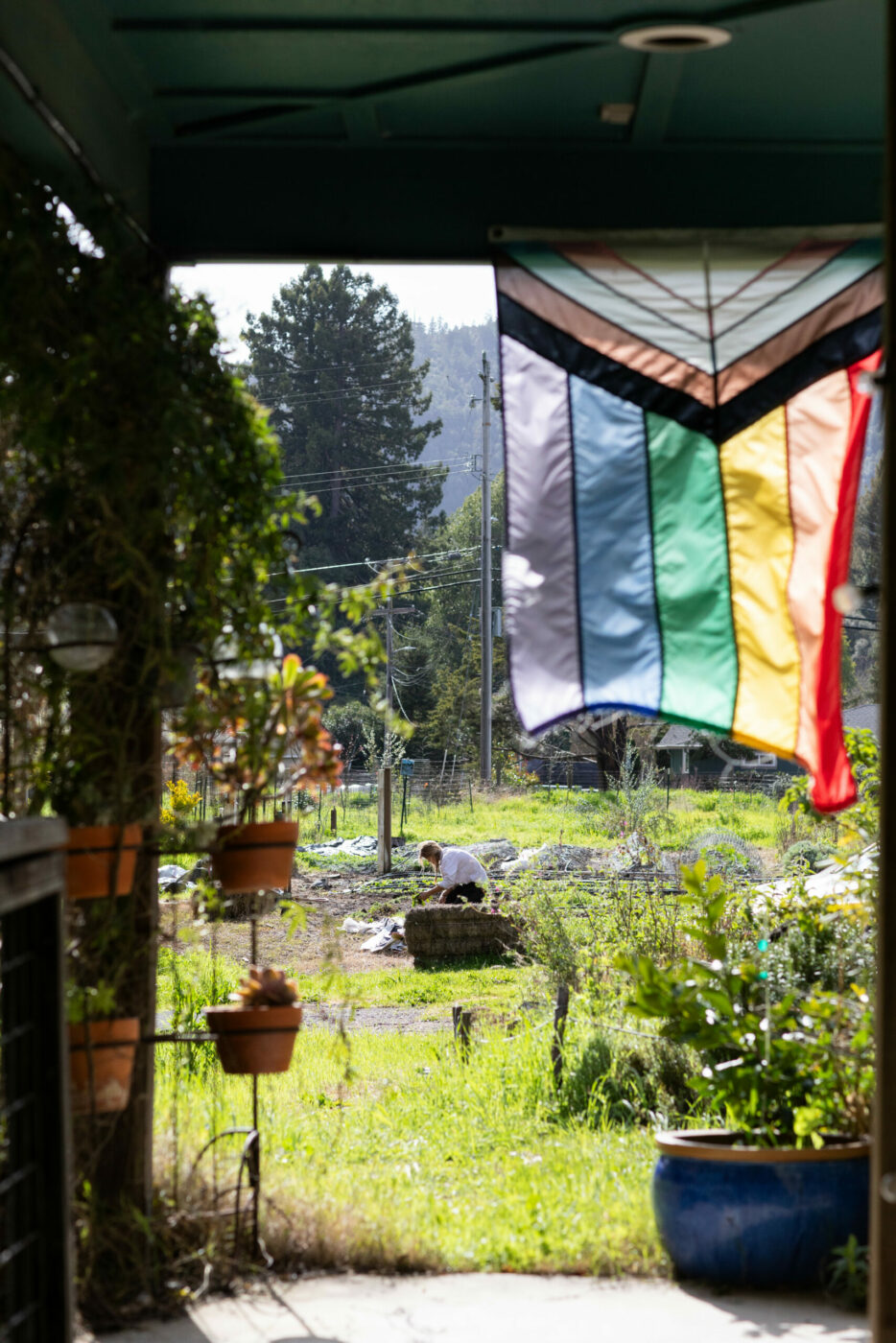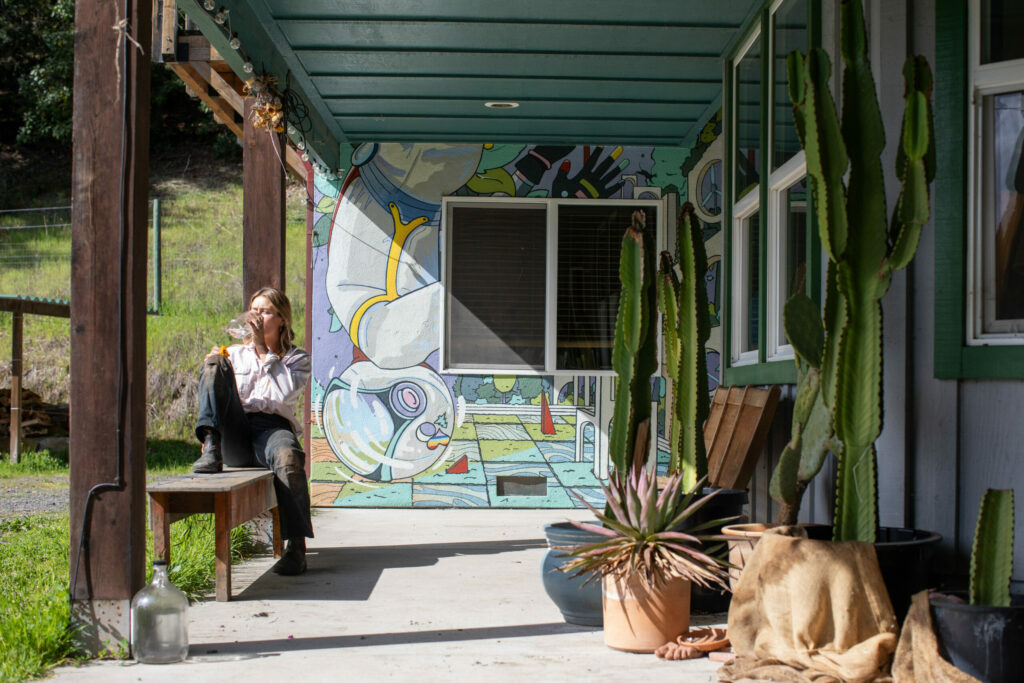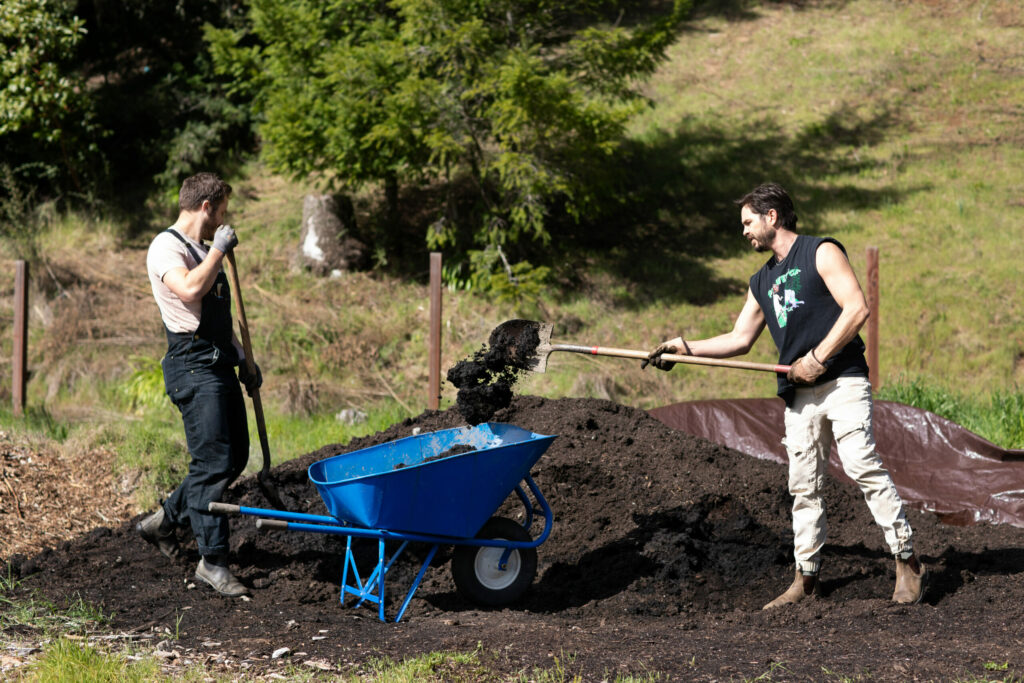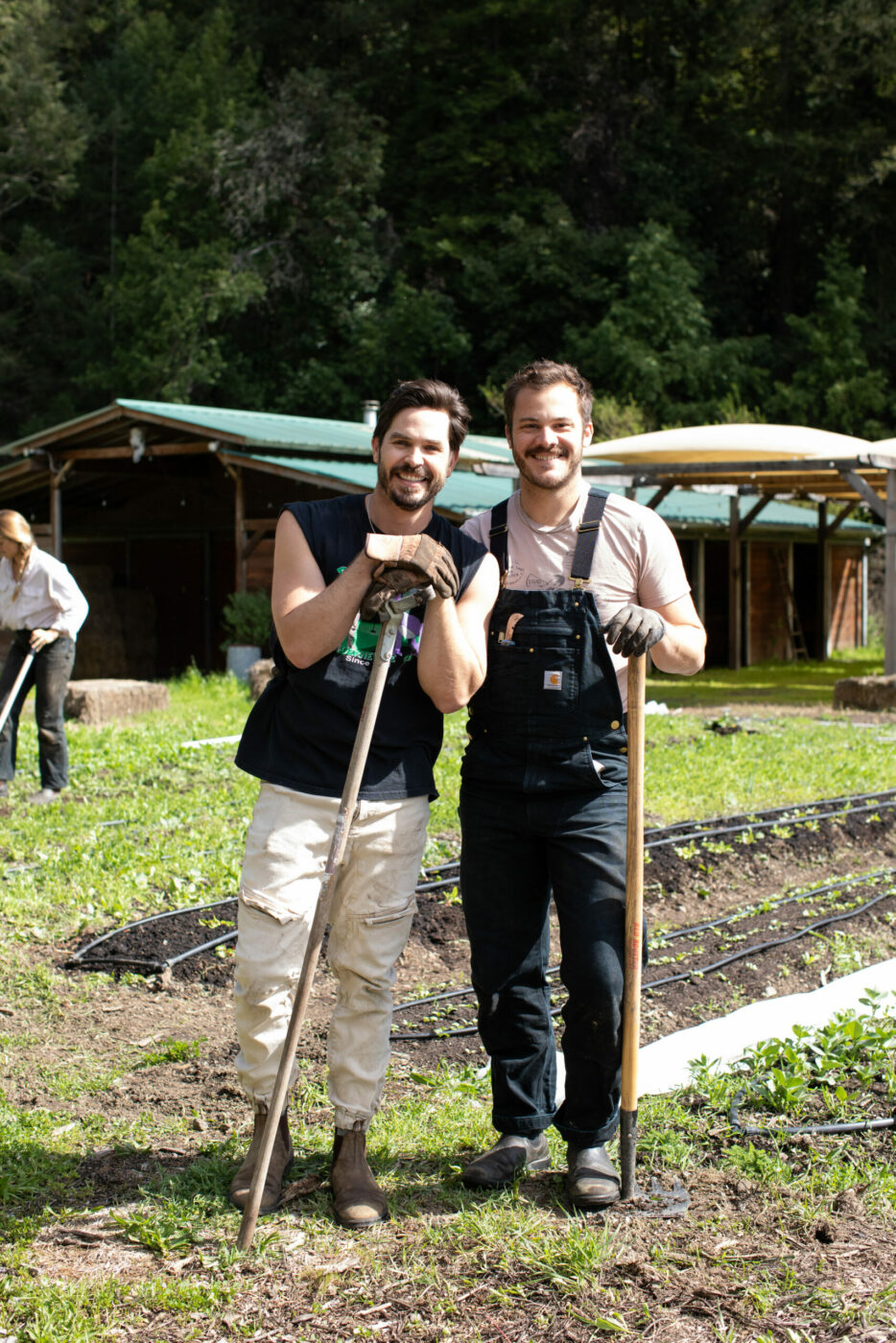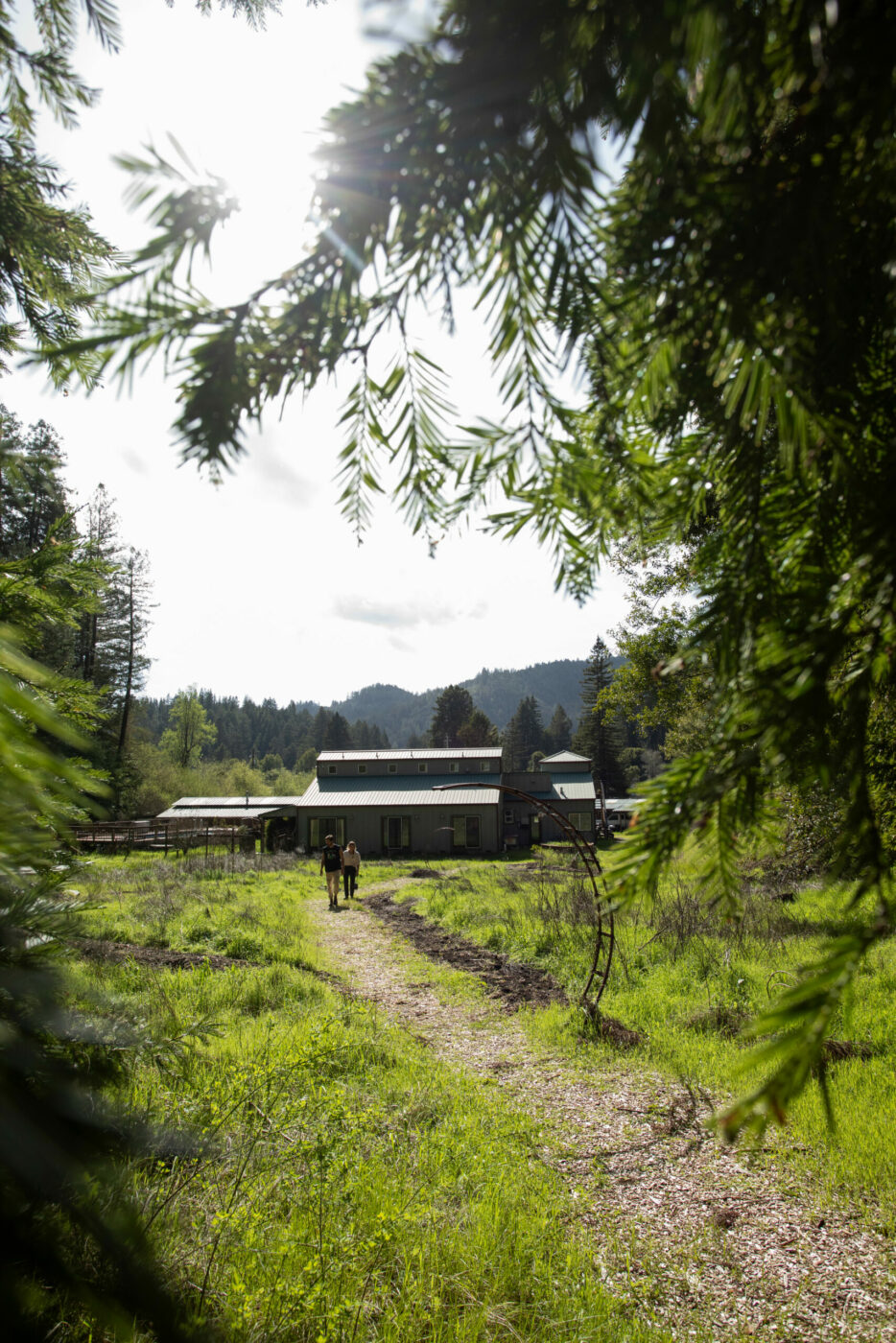Nick Schwanz and Spencer Scott are living a vision for a more joyful and sustainable future. On their experimental land project in rural Guerneville, the couple demonstrates how a life that centers caring for the earth can be forward-thinking, delicious — and serve the wider community.
In early 2020, Nick and Spencer were living in San Francisco but dreamed of moving to a place where they could build a more thoughtful relationship to the natural world. They began to draw up a list of what that different life could look like, centering the importance of community and resilience. “We made this impossible list so that we wouldn’t do it,” jokes Spencer. “But then when we found this place, it definitely felt like, ‘OK, we’re in.’”
The place that captured their imagination was a 10-acre horse ranch that admittedly was in somewhat rough shape for a future regenerative farm — much of the front acreage was buried under a foot of compacted sand where a riding arena used to be. But it was right in Guerneville, with that town’s strongly rooted queer community, and the couple knew that with effort, the land could be remediated for vegetable beds and orchards. The property also boasted a small redwood grove, a house with enough space to host friends and family, and plenty of access to nearby wild spaces.
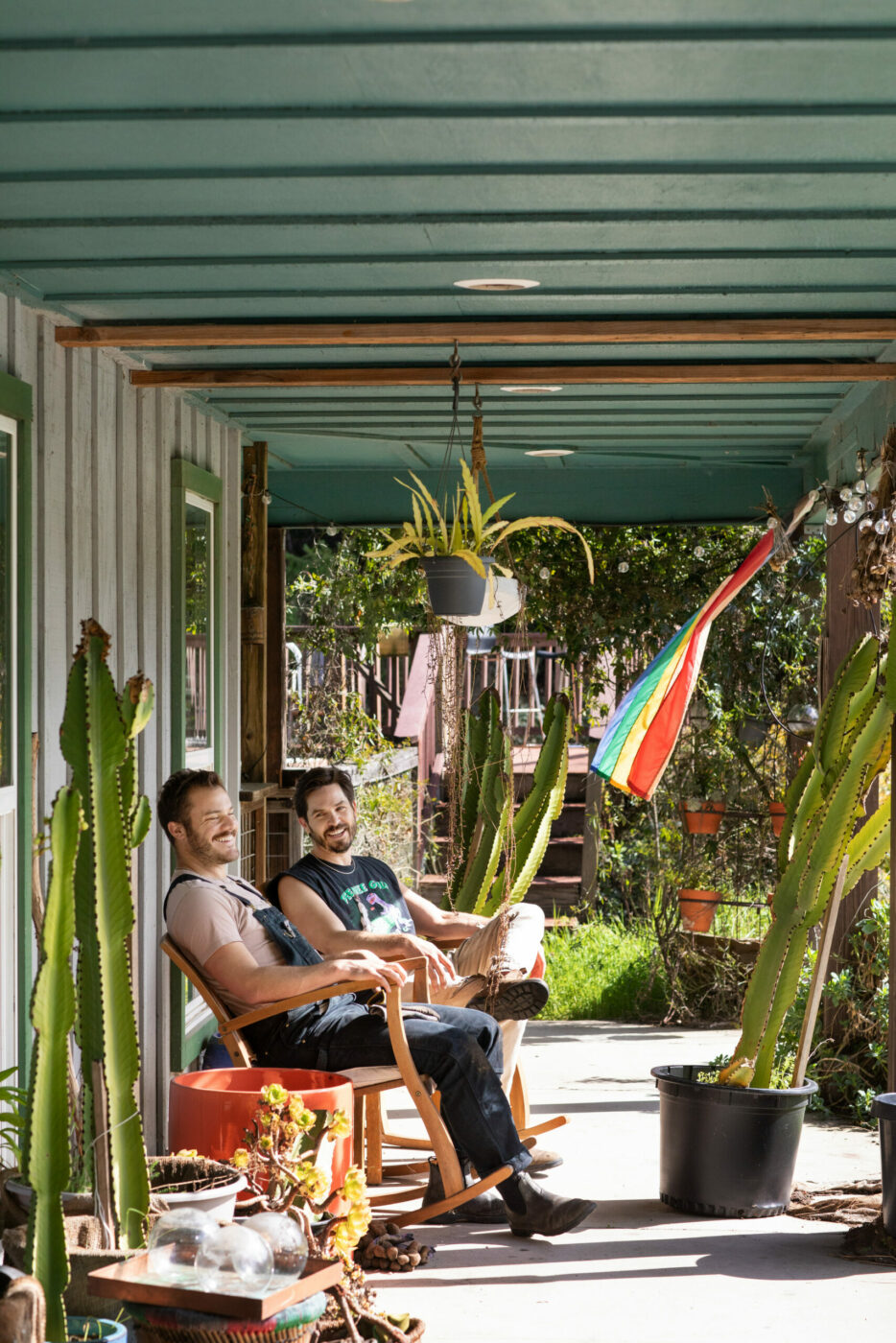
“You have to fall in love with land to do a land project,” says Nick. “And there’s nowhere easier to fall in love with land in Northern California. We have the most diverse, the biggest, the most grand, the most sweeping natural ecosystems of anywhere in America. It’s just crazy how magical this place is.”
The couple moved to the farm in 2020. The first order of business? Tearing out the riding arena and building up soil and infrastructure to grow food. “The beginning was actually the easiest part,” says Spencer. “There was so much excitement, and we didn’t know how far we had to go.”
“We had that sprinter energy, like the beginning of a race where you come out of the gate fast,” laughs Nick.
Five years down the road, Solar Punk Farms is an ever-evolving demonstration of a vibrant, positive, inclusive, climate-first existence. With the help of Nick’s father, a master carpenter, they’ve refurbished the house and built a large chicken coop — and a magnificent, spiral, solarpunk-style greenhouse, which has become a local landmark.
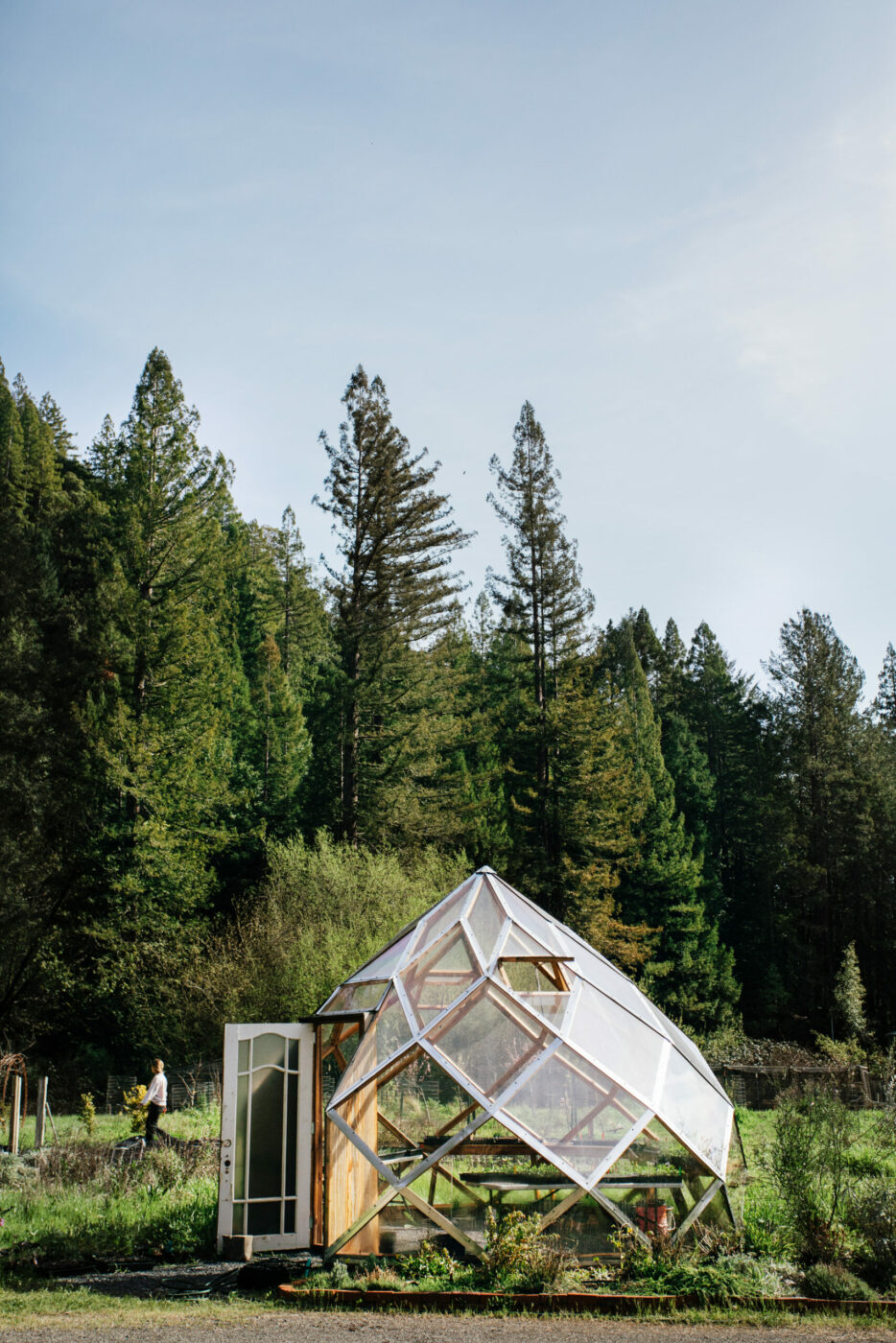
Nick and Spencer are also selling produce to local restaurants, teaching schoolkids how to grow food, and giving away 40 cubic yards of compost a month in partnership with Zero Waste Sonoma. Support from Fulcrum Arts, which works with emerging organizations at the intersection of art and science, allowed the couple to hire their first full-time employee to assist with farming outreach and education. They’ve also hosted work parties, climate education talks, homemade brunches for local seniors, wine festivals and even a wedding — their own, on a hand-built stage in the redwood grove out back in the summer of 2023.
Spencer is currently finishing a book about living a climate-forward life, even as the couple continue to shape the vision for the project and work day jobs to keep afloat. “It’s always, ‘What’s the next thing?’ And I think that’s in our blood,” Spencer says. “Nick and I are always doing three jobs and working on three projects all at once.”
Sharing their work
Nick: People are sometimes surprised that this is our home. People will drive into our driveway sometimes, and we’ll just stop and give that random stranger a tour. What helps is that we’re both very passionate about sustainability and this project we’re working on. So it’s a joy to bring people along and make community around the thing we’re really passionate about.
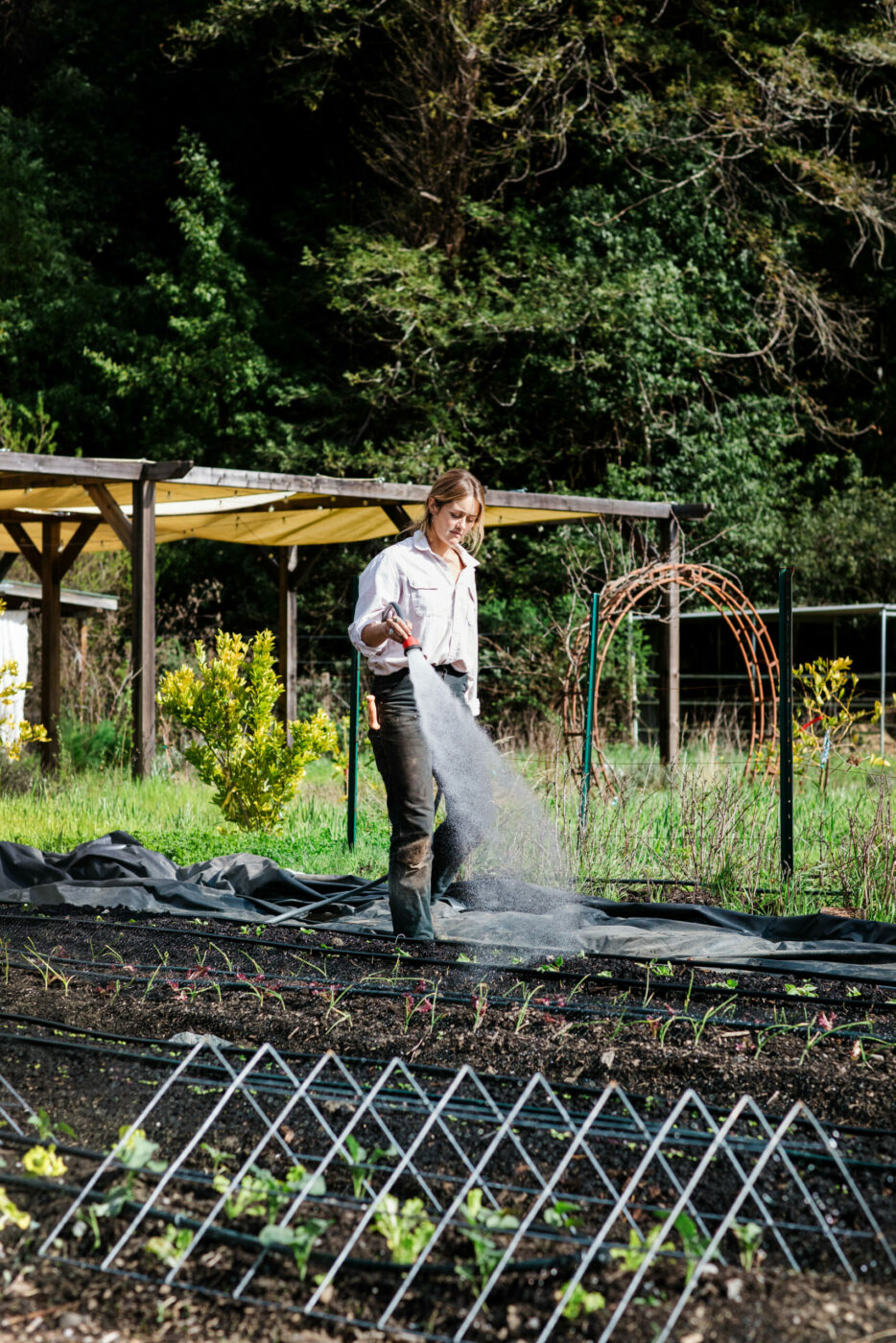
Self-reliance vs. community reliance
Nick: A lot of people, when they think about homesteading, it’s often framed around self-reliance. That’s not what Solar Punk is all about. This is not self-reliance; this is community reliance. One of the chapters of Spencer’s book is called the myth of self-reliance. The idea is that it’s not about being isolationist and showing all the things that we can do on our own. It’s about showing that a project like this requires a ton of community.
The role of a farmer
Spencer: I think we’ve romanticized farming in a certain way that doesn’t give enough respect for how difficult it is. I want to say that in a very positive way. I mean that it’s important to respect how difficult it is to farm — and at the same time, it’s also great to have an herb garden on your windowsill. There are different levels of what farming and growing food means. You don’t need to be a farmer to be a voice within this larger climate and sustainability movement. It’s fun to grow food and eat your own food, but it’s also fun to support your local farmers who are already doing it well. That’s ultimately part of doing a project like this.
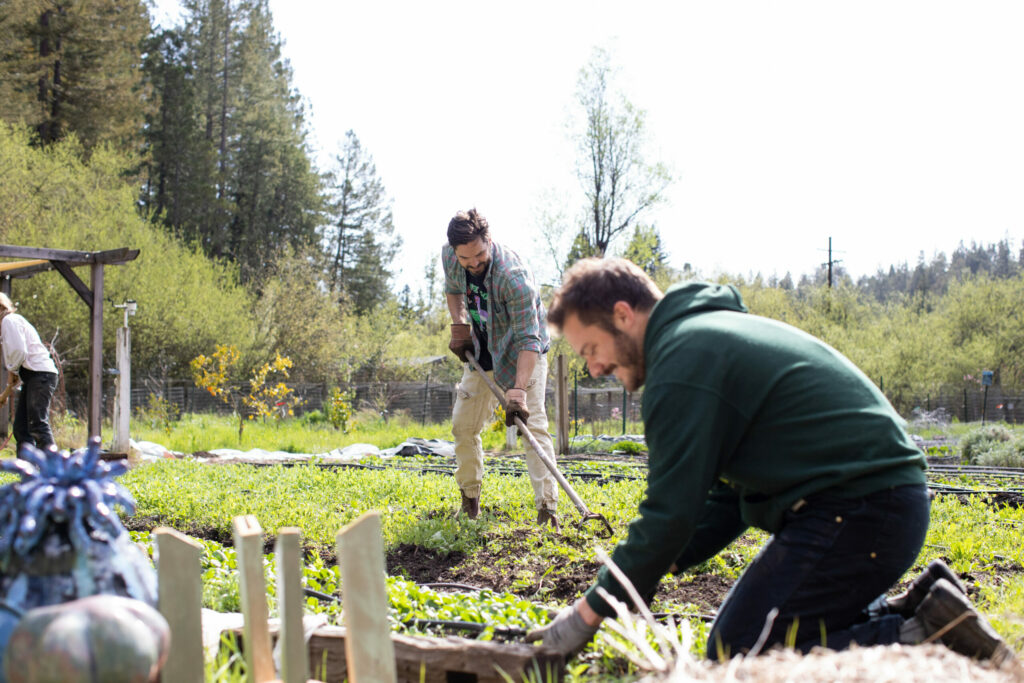
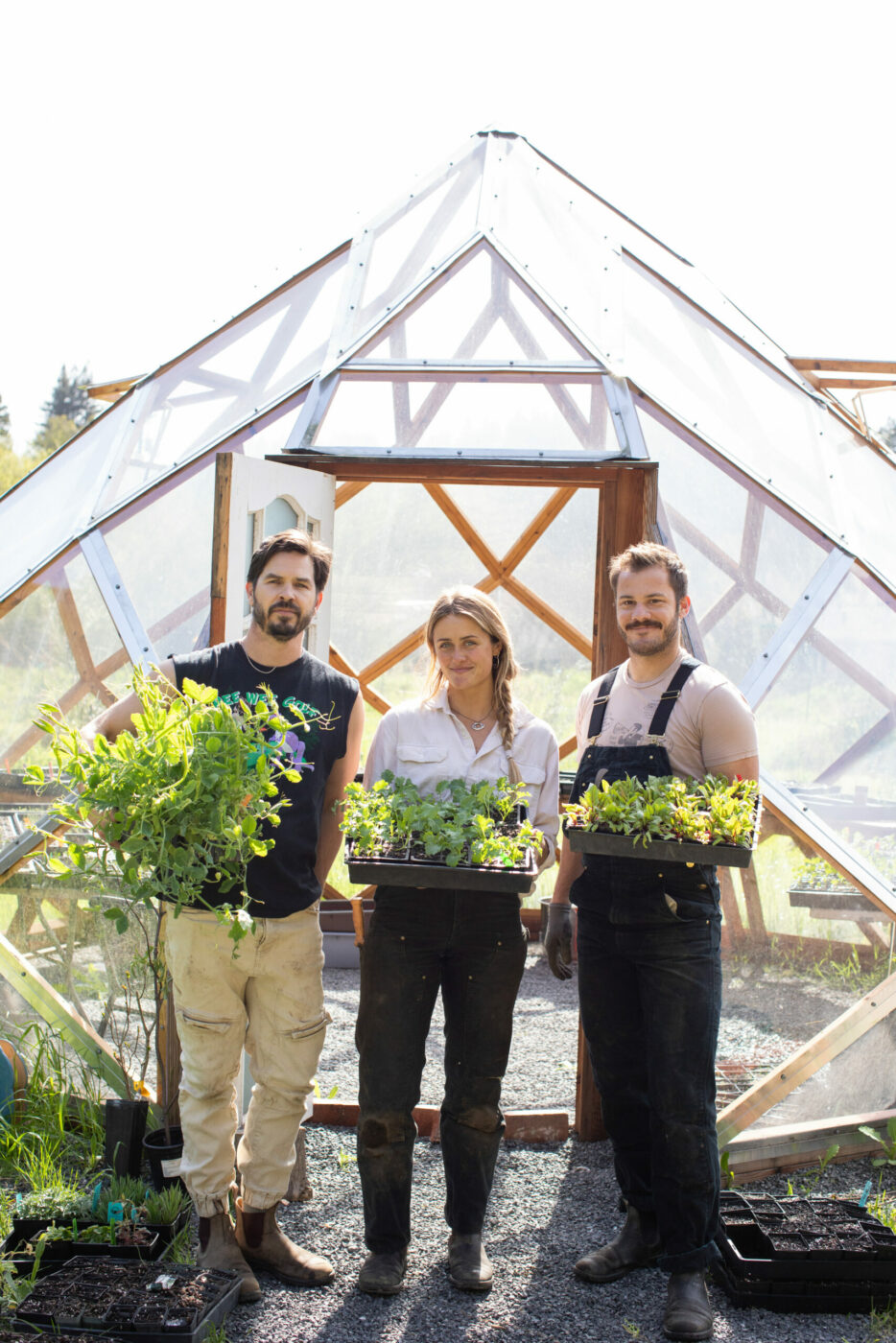
Part of something bigger
Nick: From a strategic lens, we’re these millennial, goofy, queer, dorky people, right? Which is behind many of the things we want to do here. So many on-ramps to the bigger climate movement have been depressing for way too long. Everything’s burning, you have to run away from this, etc. The wider solarpunk movement that we named the farm for was founded on the idea that the on-ramps need to be fun and beautiful and optimistic and inclusive and all of these things, because that’s what will get people to join.
On not always knowing what they’re doing
Nick: We’ve talked a lot about how we were just run-of-the-mill, everyday city people and now we are doing this project. And the learning is the point — we’re not doing it because we’re good at farming. We’re doing it because we want to learn how to do it. So expertise isn’t a barrier — that’s one of the messages we’re trying to get at. Not everybody is going to do a land project, not everybody lives in the country, a lot of people live in cities. Everybody’s got different backgrounds. But the climate movement desperately needs everybody involved in some capacity, and being good at something shouldn’t be the limiting factor. Learning how to be good at it should be part of what makes it enjoyable.
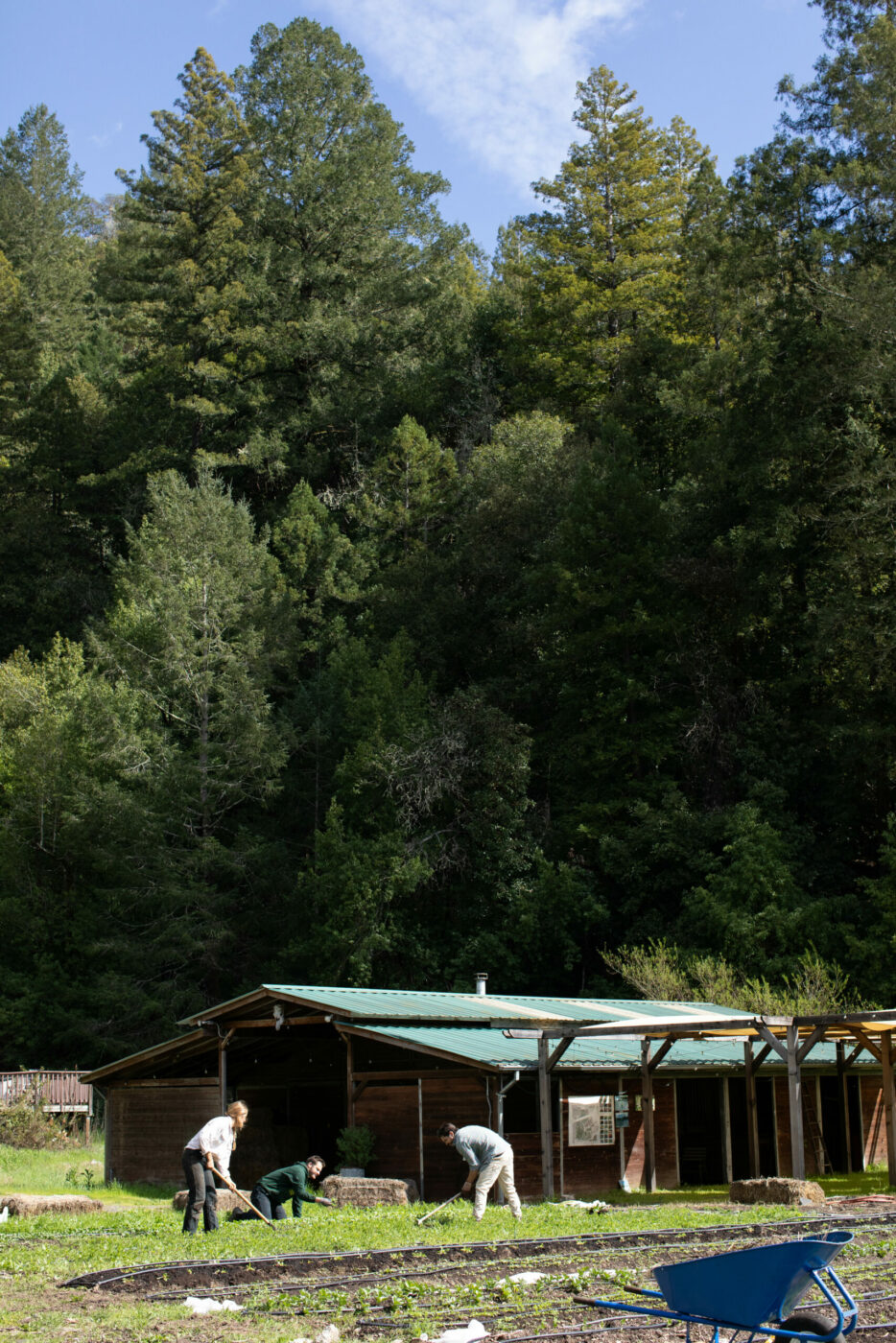
Working at the speed of the land
Nick: My biggest awakening and shock with this project was needing to work on a different timeline than I was used to. We took a permaculture design class with Occidental Arts and Ecology Center, and on the last day, we were talking with the teacher, and I told him I’d learned that I really need to slow down. And the teacher said, ‘I’m glad that you called that out. I can tell you want stuff to move faster and be more in your control. And I can tell you, that’s not how a big land project is going to work.’ So it was a really big, energetic shift to a place where you are working at the speed of the land, and that’s fixed. You do as much as you can and then get excited for the next season.
Spencer: It’s been a battle to find a balance between staying motivated and not forgetting to be happy with where this place is at every stage along the way. It helps when people visit and they say, ‘You guys have done so much.’ Because there’s still so much more to do.
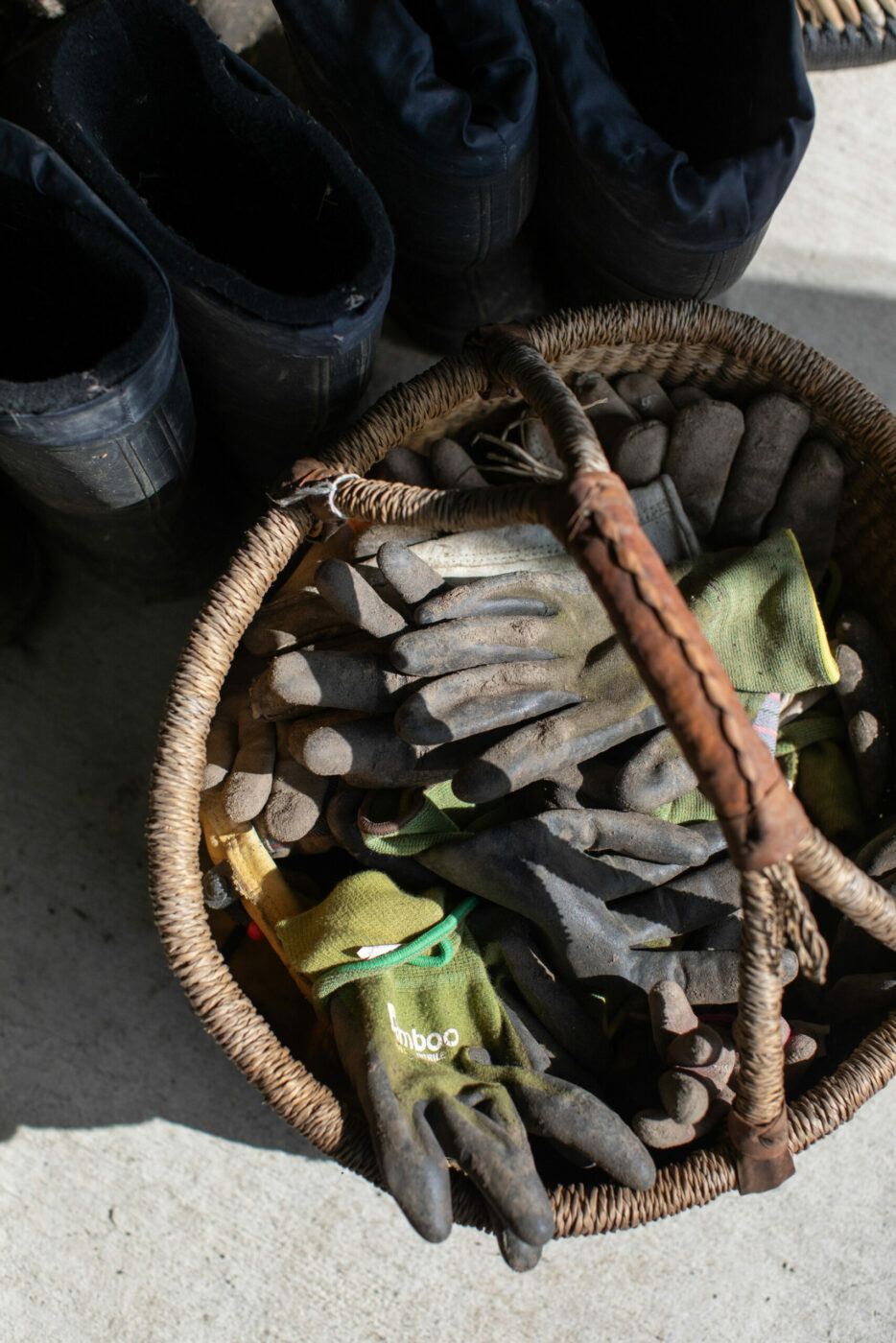
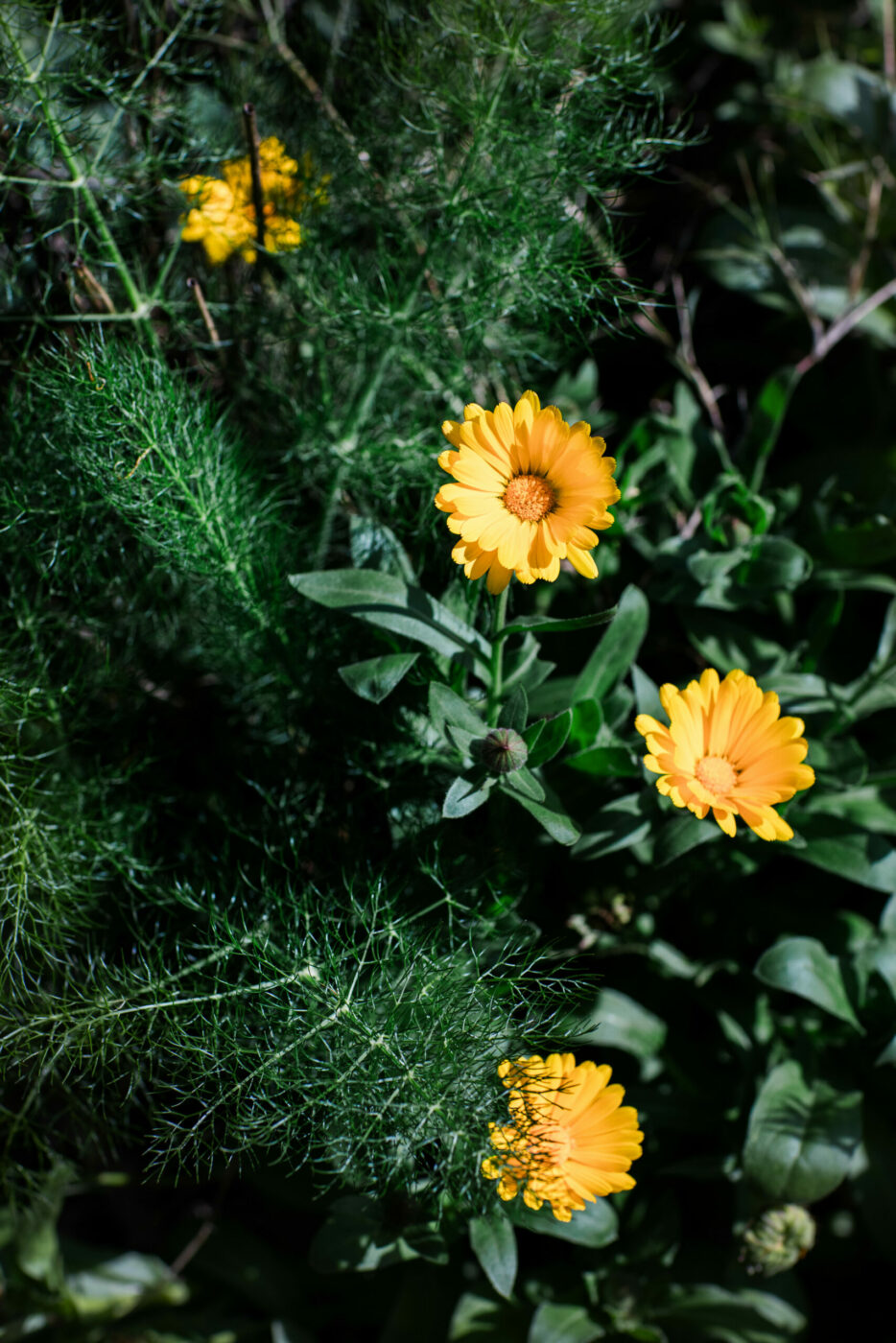
Summer on the horizon
Nick: I know everybody says summers on the farm are when it’s really crazy. But for us, spring is super intense, when we’re cleaning and planning and planting and getting all this stuff done. And then June is when all of the investment of spring comes alive and we start to realize the fruits of that labor. The big kickoff to summer is now Big West Wine Fest, and that’s also when we start to do our fun little pool parties. And this year, the garden is going to be producing a ton.
Spencer: There are all these intentionally planted things, and you start getting the fun flowers that come up in the beds after the spring wildflowers finish. So it’s about helping out in the garden, making jam, making big meals with the vegetables. It’s so fun.
Nick: We’ve never had a June like this. There’s going to be so much bounty. This is the first time when I feel like we have enough people here to do it all and do it well, so we’re really excited about it. This is going to be like the unveiling year.
To learn more about regenerative farming, LGBTQ+-friendly work parties and local outreach programs, including free compost distribution, visit solarpunkfarms.com.
Solar Punk Farms hosts the third annual Big West Wine Fest natural wine gathering June 14 and 15. bigwestwinefest.com


